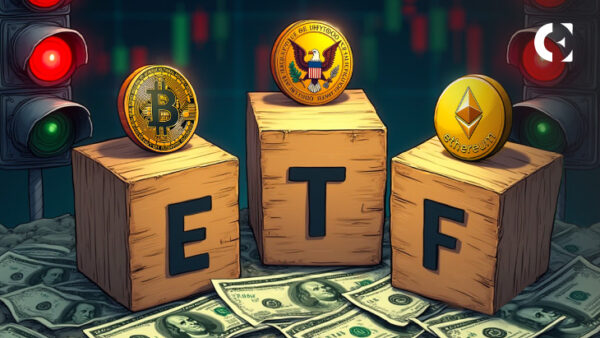- SEC clears pilot for ETF share classes, starting with Dimensional Fund Advisors.
- Mutual funds may now trade as ETFs, adding liquidity and tax efficiency.
- Over 80 asset managers await approval to launch ETF share classes.
A key SEC notice would soon allow asset managers to add ETF share classes to existing mutual funds, using a multi-share class structure. As a result, mutual fund managers could offer ETF versions of their funds without launching entirely new ETFs.
The first firm to test this model is Dimensional Fund Advisors (DFA), which has filed for exemptive relief to permit its mutual funds to also issue ETF share classes alongside traditional mutual fund shares.
How ETF Share Classes Work
In this new model, a single mutual fund holds one set of underlying assets but issues two types of shares. One class trades intraday on the exchange like any ETF. The other class remains in traditional mutual fund form, trading once per day at its net asset value.
That design gives investors choice. You can pick the ETF share class for liquidity, intraday pricing, and the tax features that come with ETFs. Or you can hold the mutual fund class if you prefer the familiar daily redemption model. It’s the same core portfolio, but two paths to access it.
In regulatory terms, the SEC’s proposed order under the Investment Company Act Release 35770 explicitly permits this as a “Multi-Class ETF Fund” may offer one or more ETF-traded classes plus non-exchange mutual fund classes.
Related: SEC to Decide on 16 Altcoin Spot ETFs in October: XRP, Solana, Litecoin on the Line
Why This Matters for Asset Managers
The SEC has indicated that this is a pilot or first step. DFA is the first mover under this new framework, and regulators expect that other asset managers will follow. There are already about 80 comparable applications from other firms seeking similar relief to issue ETF share classes for their mutual funds.
Many in the industry are hopeful, seeing this as a new way for traditional investment firms to compete with ETFs, allowing them to capitalize on their existing funds’ performance while gaining ETF perks.
However, it’s worth noting that the SEC will require safeguards against conflicts of interest between share classes, disclosures, and ongoing oversight.
A big step for crypto and tokenized projects
The ETF structure is already being used in crypto via Bitcoin and Ethereum ETFs, but if mutual funds can also adopt ETF share classes, that lowers structural friction for funds considering tokenized or blockchain-based strategies.
If regulators allow ETF share classes on mutual funds, managers could attach an ETF class to a fund that invests in tokenized assets. That would streamline approvals, cut launch times, and make it easier for tokenized strategies to reach investors.
Also, ETF classes generally benefit from in-kind redemption mechanics, which can reduce capital gains distributions. This model is attractive to taxable investors and relevant for crypto funds in non-tax-sheltered accounts.
While it’s still very early and the SEC has yet to go beyond this first step, the move could lead to the development of new kinds of investment funds that combine traditional finance with crypto technology.
Related: SEC’s October Calendar Brings Six XRP ETF Verdicts in One Week
Disclaimer: The information presented in this article is for informational and educational purposes only. The article does not constitute financial advice or advice of any kind. Coin Edition is not responsible for any losses incurred as a result of the utilization of content, products, or services mentioned. Readers are advised to exercise caution before taking any action related to the company.







